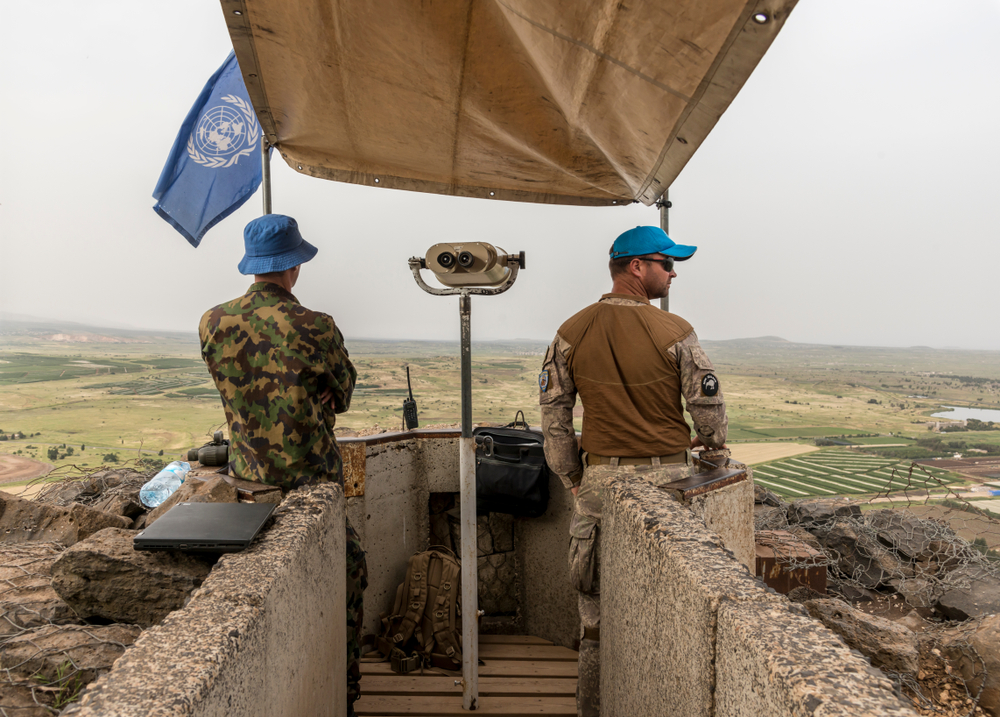by Dennis Jett
If it is one thing that the U.S. government does not like to pay for it is the cost of UN peacekeeping operations. The Trump administration could save American taxpayers about $170 million a year on peacekeeping if it wanted to, but it won’t. Here’s why.
While she was ambassador to the UN, Nikki Haley frequently complained about the bill for peacekeeping. She announced, for instance, that the United States had unilaterally decided to pay only a quarter of the tab instead of the 28 percent it has long been assessed under a UN formula for allocating the burden. She also laid out some guidelines for peacekeeping, presumably as a way to shut down operations that don’t meet them. Her four principles required that operations have host country consent, support political solutions, have realistic and achievable mandates, and have an exit strategy.
There are 14 UN peacekeeping operations currently underway. The six oldest of them were established decades ago to help end conflicts over territory. More recent operations deal with civil wars over political power or attempts to counter violent extremism. Together the six oldest account for more than three centuries of peacekeeping efforts, but none of them has any prospect of ending. And they all violate most of Haley’s principles of peacekeeping.
None of the six is going to end in the foreseeable future, mainly because the permanent members of the UN Security Council will prevent it. National Security Advisor John Bolton wants to terminate the operation in the Western Sahara, which was begun in 1991. It is supposed to help hold a referendum on independence for the region. Morocco, which claims the territory, will not permit one that might result in independence, and the Polisario Front will not agree to one that does not. Because France will always work to protect Morocco’s interests, the mission will not be ended.
In Cyprus, the mission began in 1964 and is tasked with getting the Greek and Turkish Cypriots to live in peace. Britain has military bases there it does not want to give up, which might be at risk if it ended. The Turkish Cypriots have no desire to be a minority in a united country, so they have declared their own state on the northern end of the island even though Turkey is the only nation that recognizes it. The Turks, no doubt with Russian support, have no interest in seeing a united country at peace that is dominated by Greek Cypriots. So that mission will never end either.
A small force has operated in Kashmir for over 70 years. But since it is supposedly making some contribution to avoiding a war between India and Pakistan, two countries with nuclear weapons and a long history of conflict, no one is ready to end that one even though what it’s accomplishing is unclear.
The remaining three peacekeeping operations are in and around Israel. They are the UN Truce Supervision Organization (UNTSO) in Jerusalem, the UN Disengagement Observer Force (UNDOF) in Syria, and the UN Interim Force in Lebanon (UNIFIL). There is also a fourth operation, the Multilateral Force and Observers (MFO) in the Sinai, which was created as a result of the Camp David accords. It is not a UN effort because Russia prevented the Security Council from approving it, so it was set up independently.
UNTSO, the UN’s first peacekeeping effort, began in 1948. It continues to this day, but makes no contribution to peace other than to provide a few military observers to the other operations. UNDOF was created in 1974 after the Yom Kippur War. Because the civil war in Syria has made it unsafe for the peacekeepers, it can’t really carry out its functions. In addition, the Trump administration last month proclaimed that “the United States recognizes that the Golan Heights are part of the State of Israel” and is redrawing official U.S. government maps to reflect that. Since Israel is never going to withdraw from the Golan and Syria is never going to give up its demands to recover it, the peacekeepers there will apparently never get to go home.
UNIFIL was established in 1978, after fighting between the Palestine Liberation Organization and Israeli military forces in southern Lebanon. While it has 10,000 peacekeepers from 40 different countries and makes dozens of patrols every day, it cannot do anything without the cooperation of the Lebanese government. That government now includes Hezbollah, which controls southern Lebanon. The United States considers Hezbollah a terrorist organization, and the Israelis believe it is stockpiling tens of thousands of rockets in population centers and digging tunnels under the border much as Hamas has done in Gaza. When the Israelis recently pointed out a brick factory that they believe is used to hide one of the tunnels, the Lebanese government refused to let the UN investigate because the factory was private property.
The MFO came into being in 1981 when Israel withdrew from the Sinai Peninsula. Because of terrorism in the northern Sinai, the peacekeepers have largely withdrawn far to the south. Meanwhile, the Egyptian and Israeli armies, which the MFO was set up to keep apart, are conducting joint combat operations together against the extremists.
In other words, the four operations in the Middle East have neither an exit strategy nor achievable goals, and none of them is doing anything to encourage a political process that might resolve the conflicts in question. They continue largely because Israel wants someone to blame when fighting breaks out. And since the United States cannot do enough to please Prime Minister Benjamin Netanyahu, it will not let them be terminated even though it would save about $170 million annually.
But those who would like to save money on peacekeeping have had some good news recently. At the urging of the United States, the Security Council agreed to end the operation in Haiti in six months. Its tasks have diminished over the years, and what was left of it was charged with trying to make the police force more professional. The last peacekeepers will pull out in mid-October just as the country is holding contentious congressional and local elections. The public is rapidly losing confidence in the country’s government, which is widely believed to be corrupt and incompetent. Half the people in Haiti live in poverty, and a further breakdown in the economic and political situation will prompt more of them to become refugees.
Washington therefore would like to save money on peacekeeping for a country it does not care about while it has no problem wasting it on operations for a country it cannot seem to care about too much.
Dennis Jett, a former career diplomat, is a professor in the School of International Affairs at Penn State. The second edition of his book Why Peacekeeping Fails will be available in June.





